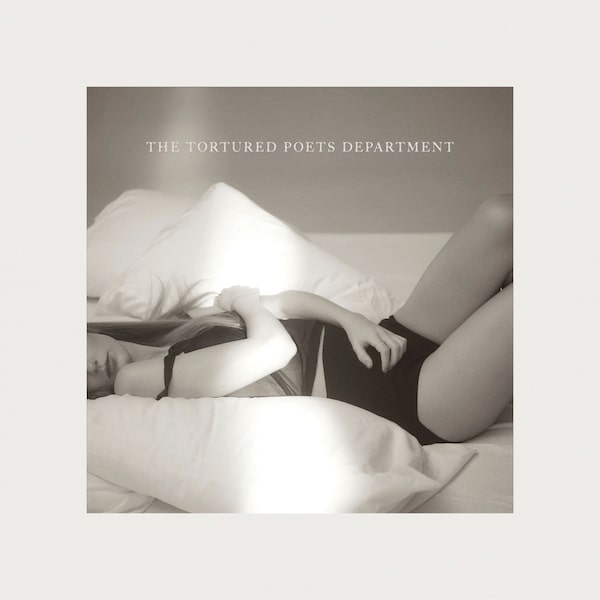Ho, hum, another solid Taylor Swift album.
It’s easy to get testy about Swift. Yes, she’s an extremely popular singer-songwriter whose diaristic lyrics bravely encapsulate the interior lives of women. Her boyfriend-daggering songs make Carly Simon blush, and she inarguably makes the world a better place.

Taylor Swift's The Tortured Poets Department.The Associated Press
But? Swift is committed to vague melodies, self‐absorbed introspection, inoffensive musical ideas and song names with exclamation points. She listens to producer Jack Antonoff too much. The manipulative lyrical “Easter eggs” adored by her ever-decoding fans – Swiftes, in the parlance – are invisible to the non-enthralled.
Taylor Swift’s The Tortured Poets Department: Veiled references, unabashed callouts and Easter eggs
And now she has released her 11th album, The Tortured Poets Department, the most pretentiously titled album since Coldplay’s Viva la Vida or Death and All His Friends.
It’s a top-notch breakup album, marked by incisive lyrics, synth-pop subtleties, dusky vocals, melodramatic chord progressions, late-night tempos and sensible rhythms. Co-producers Antonoff and the National’s Aaron Dessner and everybody else in the quality-control department at Taylor Swift Inc., are due big bonuses this year.
Among the main 16 tracks – there are 15 more on The Tortured Poets Department: The Anthology – not one is a clunker. Even My Boy Only Breaks His Favorite Toys, with its out-of-fashion “oh-oh-oh” moments, work.
Highlights include Florida!!!, a collaboration with Florence Welch that interjects sharp, crashing shout-outs to the panhandled state in an otherwise understated number. Swift ruminates on her early-30s situation: “And my friends all smell like weed or little babies.”
But Daddy I Love Him harks back to Swift’s country music youth. The song is about an unapproved romance: “I‘m having his baby; No, I’m not, but you should see your faces.” Turn up the fiddle and take out two-dollar words “sanctimoniously” and “soliloquies,” and country radio will play it.
With its boys-choir style intro, So Long, London feels churchy. The talk among the Swifties is that the song alludes to the end of the singer’s long relationship with British actor Joe Alwyn: “And I’m pissed off you let me give you all that youth for free” and “I died on the altar waiting for the proof.” Some women listening to So Long, London will shake their heads so hard in agreement their fascinators will fly right off.
Swift saves her best simile for the bittersweet title song, apparently about former lover Matty Healy of the rock band the 1975.
You smoked then ate seven bars of chocolate
We declared Charlie Puth should be a bigger artist
I scratch your head, you fall asleep
Like a tattooed golden retriever
There will undoubtedly be critics who hail The Tortured Poets Department as a great album. It is not that – there isn’t that one great song, nothing even close. For all her streams, sales and sold-out concerts, Swift does not write many classics. To be the millennial Bruce Springsteen some have suggested she is, Swift needs to produce touchstone music.
For his 1984 album Born in the U.S.A., Springsteen wrote some 70 songs, including Cover Me, I’m on Fire, Glory Days, My Hometown and the anthemic title song. One of the album’s producers, Jon Landau (also his manager) told Springsteen he wasn’t done, though – the album needed a blockbuster single. Springsteen wrote Dancing in the Dark that night. The rest is history and a Courteney Cox video.
The point is that the Boss had a boss, Landau. Michael Jackson had Quincy Jones. Beyoncé has Beyoncé. Swift has indie rockers Antonoff and Dessner – no drill sergeants, them. In today’s record business, “good enough,” not greatness, is the goal. Swift’s poetry is fine, but where’s the torture?
 Brad Wheeler
Brad Wheeler